I declare and assign vector pointer with shared pointer of class that has a big-size array pointer. From deleting the vector pointer, I expect to free the memory from the big array. My question is that why the memory is NOT deallocated at the right moment after 'delete vec' before 'return 0'. From debugging mode, you can see it in the window task manager. Please let me know why 'delete vec' does not work as I expected.
class test
{
public:
test() { A = new double[500000000]; }
~test() { delete[] A; }
double *A;
};
int main()
{
vector<shared_ptr<test>> *vec =new vector<shared_ptr<test>>();
vec->push_back(shared_ptr<test>(new test()));
vec->push_back(shared_ptr<test>(new test()));
vec->push_back(shared_ptr<test>(new test()));
delete vec;
return 0;
}
